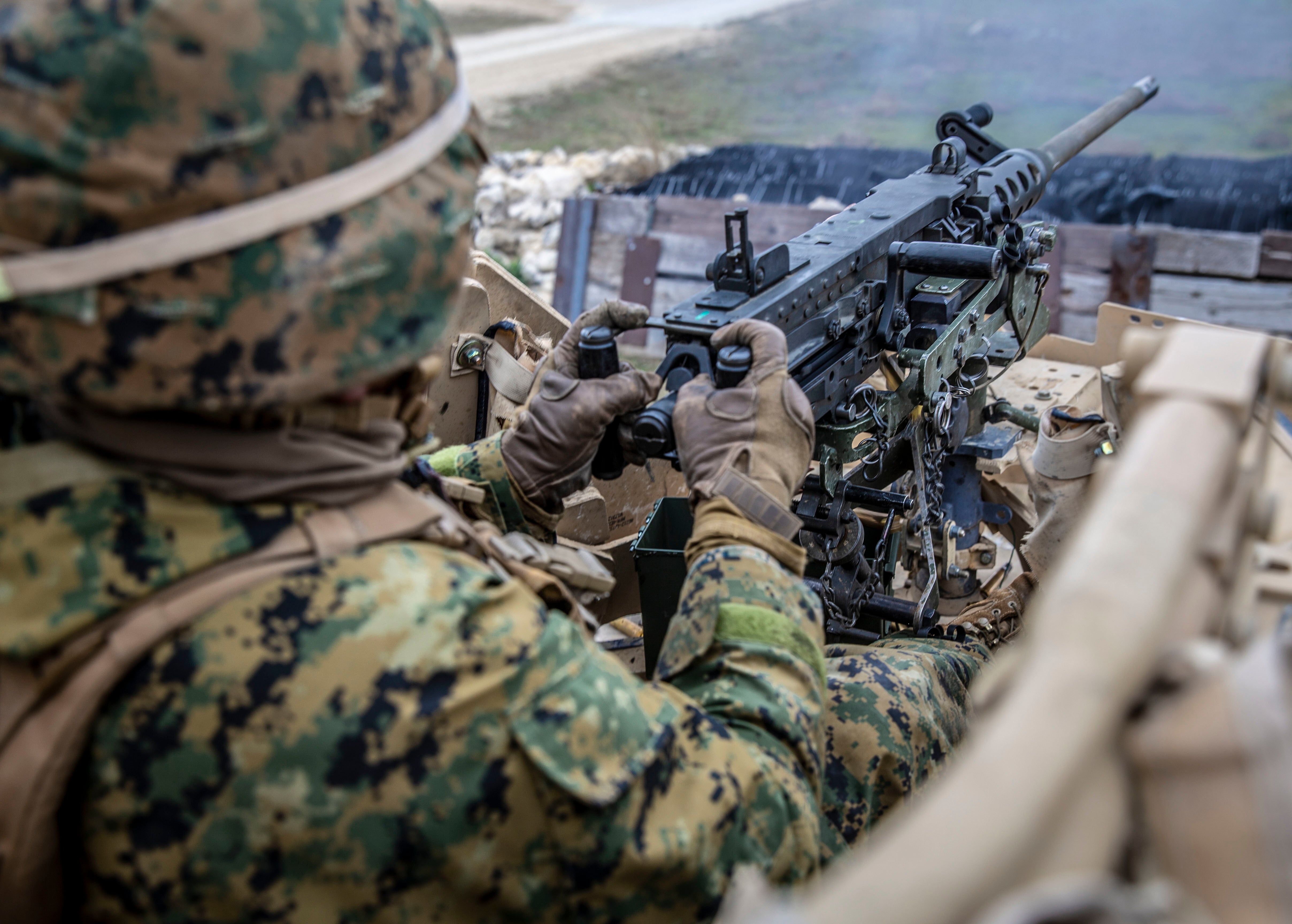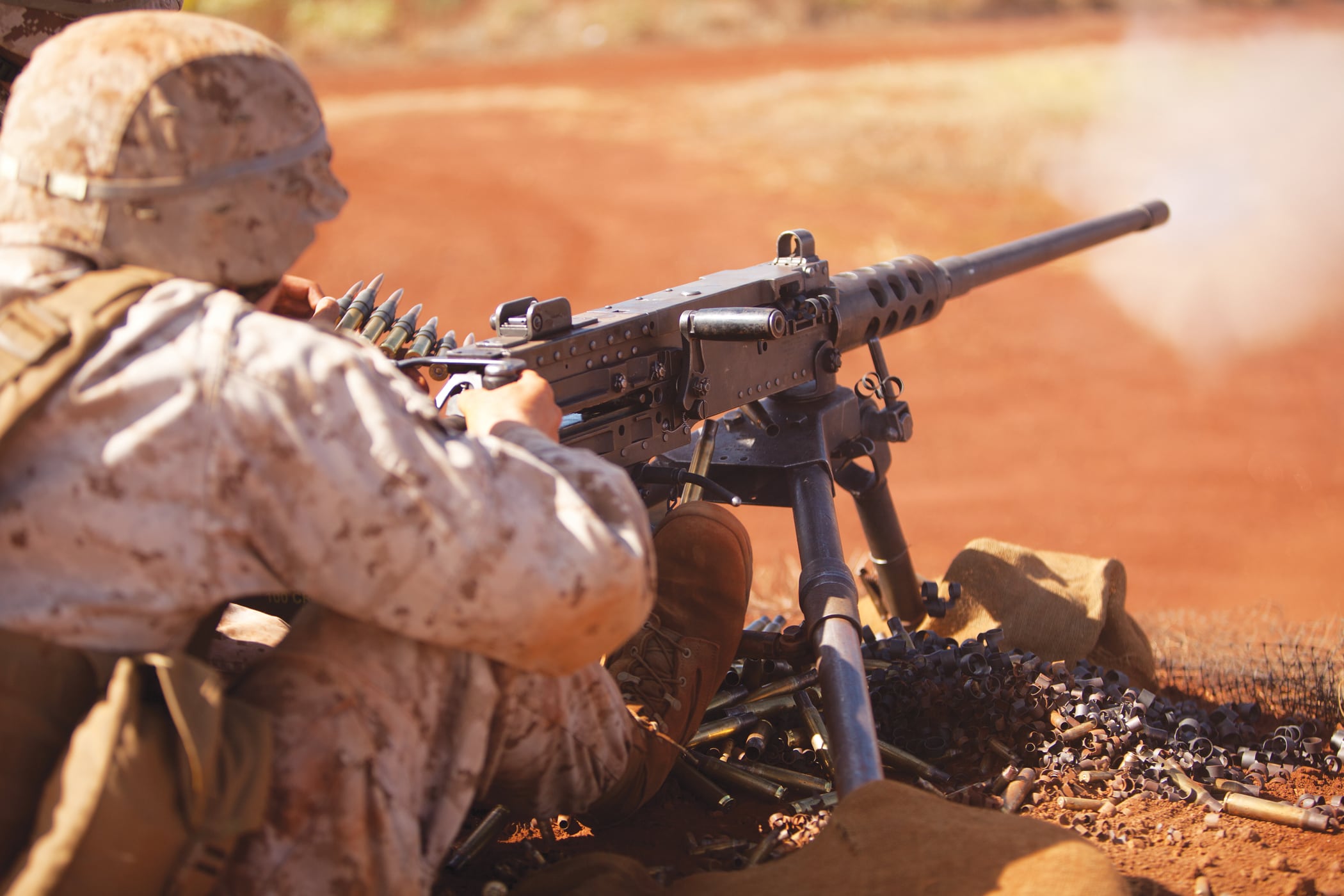The Marine Corps has awarded a $10 million contract for new lightweight polymer .50 caliber ammunition for the M2 Browning Machine Gun ― a staple of the military’s arsenal since World War II.
The contract was awarded Thursday to MAC LLC, a Bay Saint Louis, Mississippi, based company, according to a Marine Corps Press release.
The company is set to provide the Marine Corps with an estimated 2.4 million cartridges throughout the next two years.
The new ammunition will use lightweight polymer to replace the brass on the cartridges as well as the metal on the ammo cans used to transports the bullets.
RELATED

The company will also use nylon to replace the tradition metal links between the bullets, resulting in a weight reduction of approximately 20 pounds per can of ammunition, Marine Corps Times previously reported.
The decreased weight will allow Marines to carry more ammunition to battle, the release said.
“When we go to war, we need more ammo to defeat our adversaries,” Lt. Col. Bill Lanham, Marine Corps Systems Command deputy program manager for ammunition, said in the release. “Polymer ammo gives Marines the opportunity to carry more ammunition or make trades with what gear is important to carry during combat."
Having Marines carry more ammunition will have secondary effects on mission planning that could ultimately save lives, the release said.
“When we reduce the weight of ammunition, we also reduce the number of vehicles in a convoy, amount of funding and the number of Marines we put in harm’s way,” John Carpenter, assistant program manager for engineering with PM Ammunition said in the release.
The new polymer ammunition was required to have the same ballistic requirements and be just as lethal as the brass M33 projectile currently used by the Marine Corps.
The release suggests that beyond just matching the performance of the old rounds, the new polymer rounds will have qualities that allow for extended use of the “Ma Deuce."
The plastic like material absorbs heat significantly better than brass, slowing down how quickly the barrel of the machine gun heats up allowing the gun to fire for longer bursts before worrying about overheating, the release said.
The Marine Corps will receive the first small batches of the polymer rounds in late 2020 and through 2021, the release said.
The Corps estimates the rounds will start hitting the fleet in 2022.




